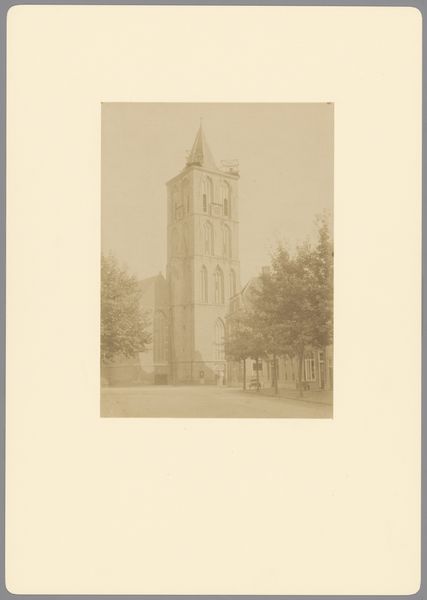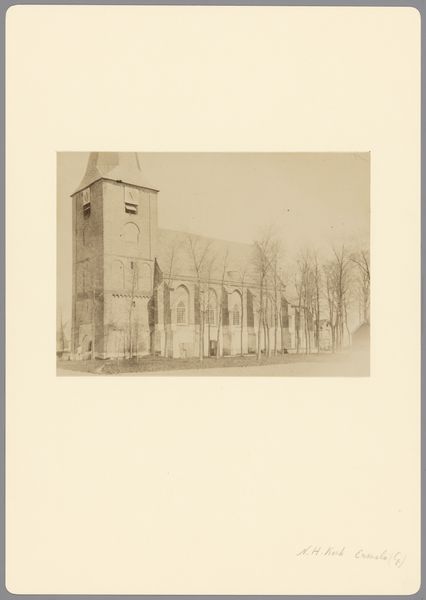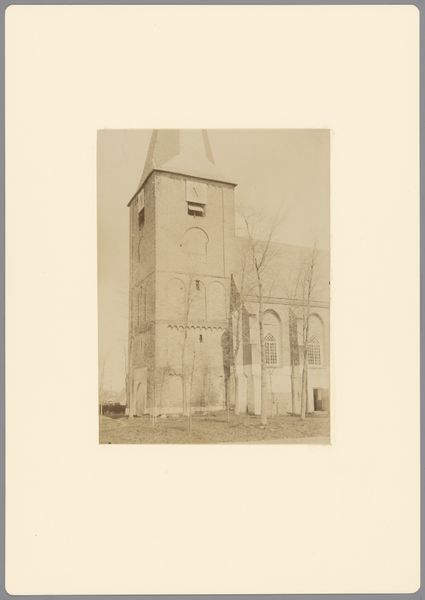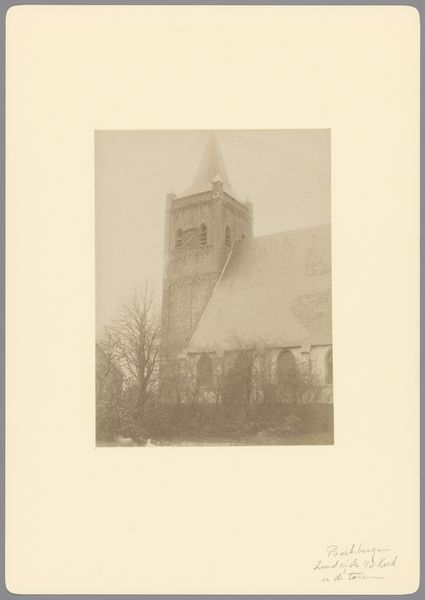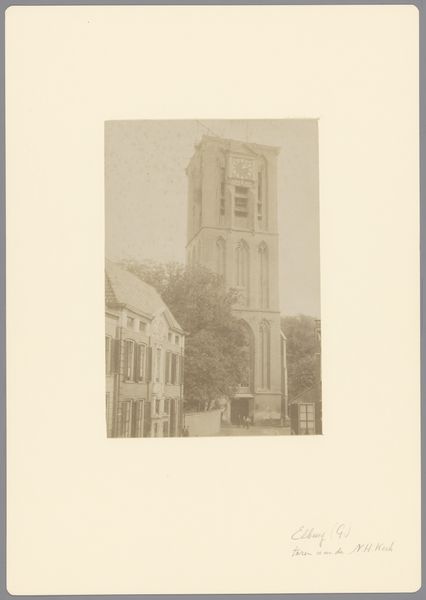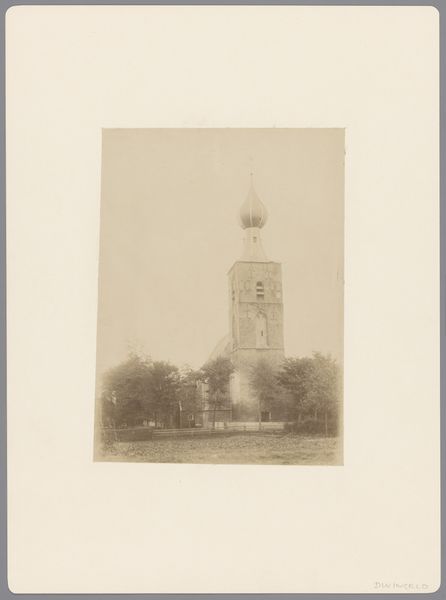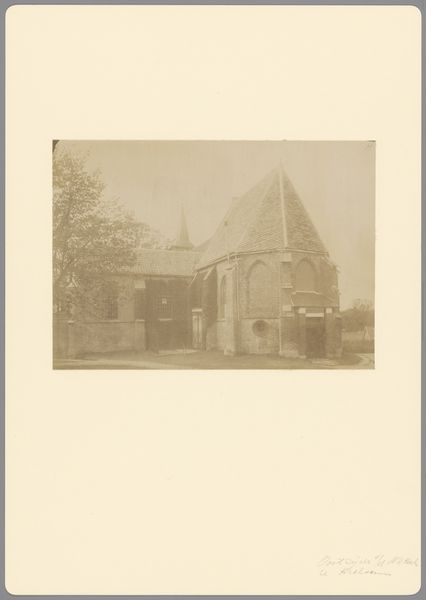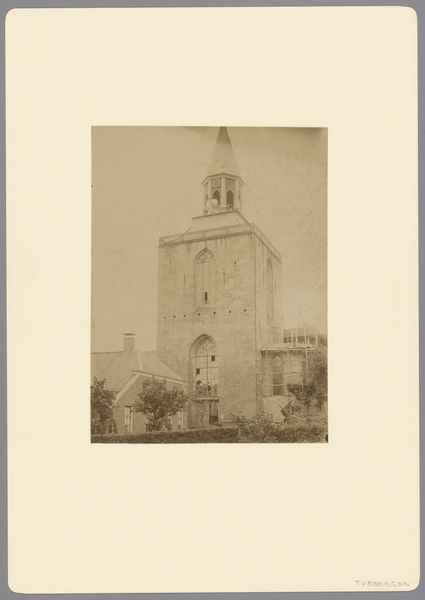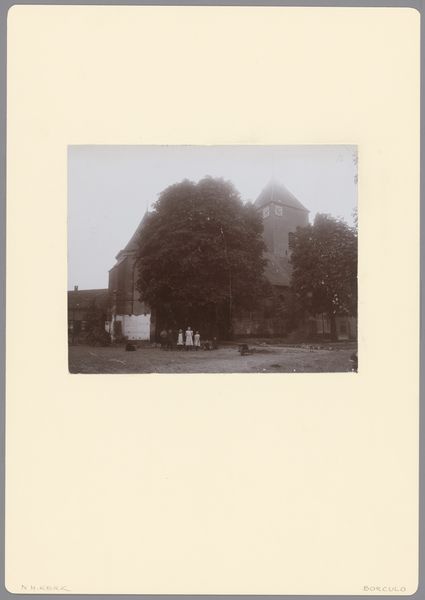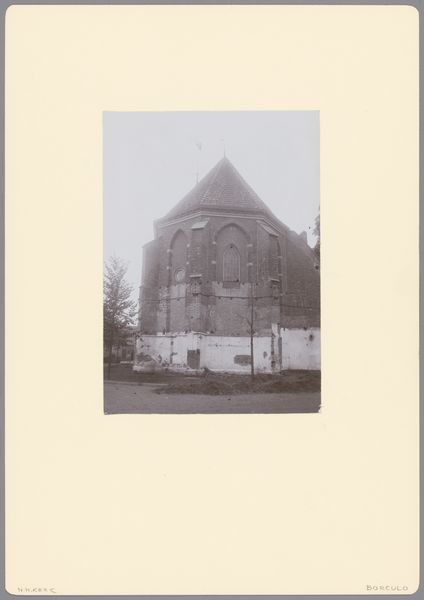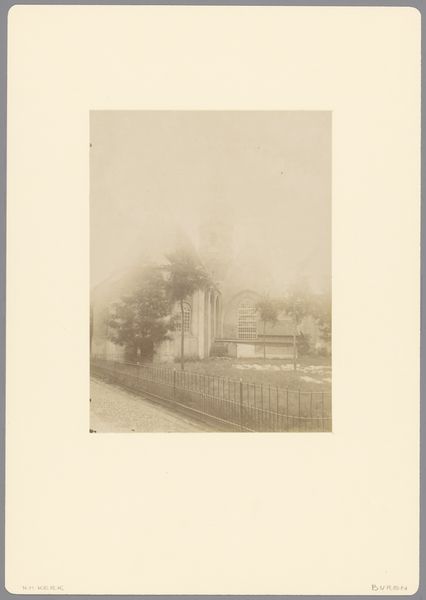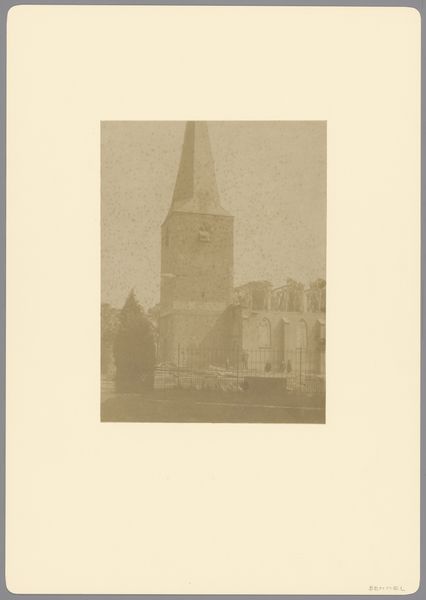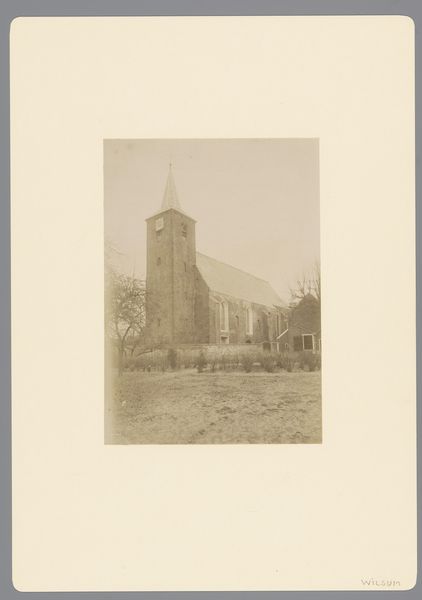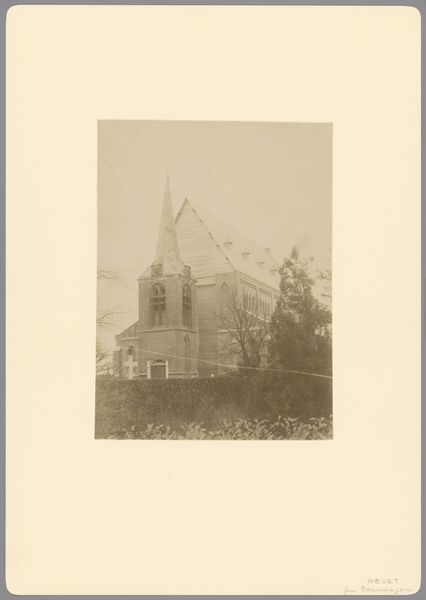
Dimensions: height 230 mm, width 169 mm
Copyright: Rijks Museum: Open Domain
This albumen print, depicting the Reformed Church in Beekbergen, was created by an anonymous photographer. Albumen printing, popular in the 19th century, involved coating paper with egg white to create a smooth surface for the photographic emulsion. This process gave images a distinctive sepia tone and fine detail. The albumen itself, a waste product from the food industry, became a key ingredient in image-making. Think of the labor: the photographer not only had to master the chemical processes, but also had to source and prepare the materials. The image itself, while seemingly straightforward, reflects a deliberate act of documentation. Churches, as community hubs, represent both spiritual life and social structure. In this context, the photograph becomes more than just a picture; it's a record of a specific time, place, and way of life. By considering the materials and processes used, we recognize that even a simple photograph can offer insights into the intersection of art, industry, and social history.
Comments
No comments
Be the first to comment and join the conversation on the ultimate creative platform.
